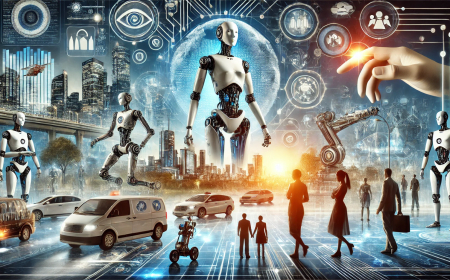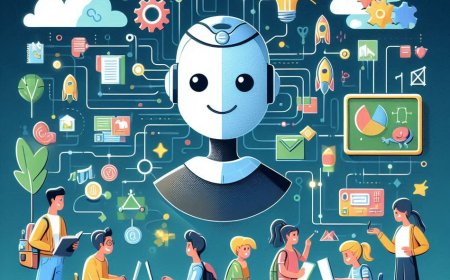How Can an AI Unit Improve Your Business Efficiency?
An AI unit can improve business efficiency through big data analysis, enhancing customer experience, boosting operational processes, supporting strategic decisions, and efficiently managing human resources. By leveraging automation, personalization, and prediction, businesses can achieve higher performance, reduced costs, and increased profitability.

How Can an AI Unit Improve Your Business Efficiency?
Introduction
AI (Artificial Intelligence) technologies are among the innovations reshaping how businesses operate worldwide. With its ability to learn, analyze, and execute autonomously, an AI unit can enhance operational efficiency, reduce costs, and achieve higher performance. This article will detail how AI can improve various aspects of business operations.
1. Big Data Analysis
A. Data Mining
- Data Collection: In the digital age, massive amounts of data are generated daily. This data includes customer behavior information, sales data, online interactions, and more.
- Pattern Extraction: AI can process this data using techniques such as machine learning and deep learning to extract hidden patterns. This can include discovering market trends, identifying factors influencing consumer behavior, and pinpointing new growth opportunities.
B. Future Predictions
- Predictive Models: AI can create predictive models based on historical data, allowing for forecasting future trends and making informed strategic decisions.
- Inventory Management: AI helps businesses predict future demand and manage inventory more effectively, reducing costs associated with overstocking or stock shortages.
2. Enhancing Customer Experience
A. Chatbots
- Instant Customer Service: Chatbots can instantly respond to customer inquiries around the clock, improving the customer experience and reducing wait times.
- Complaint Handling: Chatbots can efficiently handle customer complaints and escalate more complex cases to human representatives when needed.
B. Personalization
- Customer Behavior Analysis: AI analyzes purchase history and browsing behavior to provide personalized recommendations and new products that match customer preferences.
- Marketing Campaign Optimization: AI can enhance digital marketing strategies by delivering targeted offers and promotional messages.
3. Improving Operational Efficiency
A. Automation
- Automating Routine Tasks: AI can automate many repetitive tasks such as invoice processing, data entry, and meeting scheduling, allowing employees to focus on more strategic tasks.
- Supply Chain Optimization: By analyzing real-time data, AI can optimize supply chain management and ensure timely product delivery.
B. Predictive Maintenance
- Equipment Monitoring: AI can continuously monitor equipment and machinery performance, detecting early signs of malfunctions.
- Reducing Downtime: Predicting malfunctions and conducting preventive maintenance can reduce unexpected downtime and increase production efficiency.
4. Enhancing Strategic Decisions
A. Market Analysis
- Informed Insights: AI can analyze massive market data to provide informed insights into emerging trends, customer demands, and investment opportunities.
- Competitive Analysis: AI helps analyze competitors' strategies and performance, enabling companies to improve their strategies based on accurate information.
B. Financial Data Analysis
- Risk Analysis: AI can analyze financial data and predict potential risks, helping businesses make safer financial decisions.
- Performance Analysis: AI provides accurate reports and analyses of a company's financial performance, enabling top management to make strategic decisions based on reliable data.
5. Recruitment and Human Resource Management
A. Resume Screening
- Selecting Talent: AI can analyze and filter resumes for job vacancies based on specific criteria, making it easier to find the most suitable candidates.
- Behavioral Data Analysis: AI can analyze candidates' behavioral data to determine their compatibility with the company's culture and values.
B. Performance Evaluation
- Continuous Assessment: AI can continuously and independently assess employee performance, providing constructive feedback in real-time.
- Professional Development: AI helps identify training and professional development needs for employees, contributing to improved performance and increased efficiency.
Conclusion
Integrating an AI unit into your business can significantly enhance operational efficiency, customer service, decision-making, and human resource management. By leveraging AI's capabilities in data analysis, automation, prediction, and personalization, companies can achieve substantial competitive advantages, drive business growth, and reach new levels of innovation and profitability
What's Your Reaction?









































